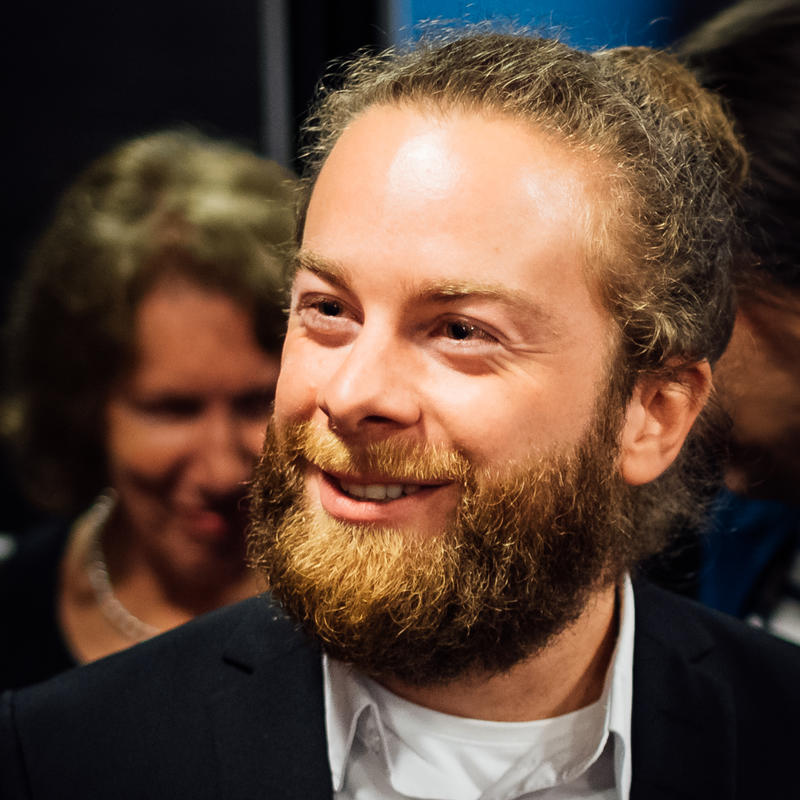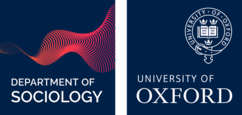Alum Emanuel Deutschmann wins Hans L. Zetterberg Prize in Sociology
Alum Emanuel Deutschmann wins Hans L. Zetterberg Prize in Sociology

Alumnus Emanuel Deutschmann has been awarded the Hans L. Zetterberg Prize in Sociology.
The Prize is given annually to young researchers from Sweden or abroad, who have advanced sociological research with their work, usually by combining theory and practice.
Emanuel was awarded the Prize for his contributions to the study of transnational migration. His work includes the development of a network-analytical approach to study the social dimension of regional integration in a global perspective, and the creation of an original open-access dataset on transnational mobility.
Emanuel studied his MSc in Sociology at Oxford's Department of Sociology, finishing in 2012. He is now Assistant Professor of Sociological Theory at the University of Flensburg and an Associate of the European University Institute's Migration Policy Centre.
The Prize is named after Hans L. Zetterberg (1927–2014), a Swedish Professor of Sociology who held positions at Columbia University as well as Ohio State University.
The Awarding Body, Uppsala University, said:
Because of the various contributions he has made to our understanding of how transnational migration is impacting our world, Deutschmann’s work aligns with the spirit of Hans L. Zetterberg, who also contributed to sociology in ways that enriched our imagination.
We asked Emanuel a few questions about his life and work:
What is your current research about?
I continue my work on transnational mobility as part of the Global Mobilities Project. Currently, we are trying to find out – together with colleagues at the DeZIM in Berlin – whether the time that you have to wait for a visa application appointment depends on your country of origin – and if yes, if there are structural explanations for this variance. We also have a new project on travel costs between cities worldwide.
What has your career journey been like, from leaving Oxford to where you are now?
I was very lucky to get the chance to live and work in a number of fantastic places. After completing the MSc in Oxford in 2012, I did a PhD at the Bremen International Graduate School of Social Sciences in northern Germany.
Then, I worked as a postdoc at the European University Institute’s Migration Policy Centre (MPC) in Florence, Italy, before returning to Germany to become a senior lecturer at the University of Göttingen. Since 2021, I've been an Assistant Professor for Sociological Theory at the University of Flensburg, while remaining affiliated with the MPC. This fall, I am on a sabbatical, visiting the Institute for Analytical Sociology at Linköping University in Sweden.
What are your ambitions for the future?
In terms of career stages, I am currently in a tenure track position at the University of Flensburg.
Research-wise, one ambition is to broaden my profile and contribute, for example, to research on the socio-ecological transformation that we face in light of the climate and ecological crises, and the social conflicts that this complex and difficult situation brings about.
Has your time at Oxford influenced your current work?
Absolutely! For one thing, the analytical thinking and quantitative methodological skills that I obtained in the MSc in Sociology proved highly valuable.
There are also very positive personal influences. For example, Christiaan Monden, who was my department supervisor, pointed me to a specific statistical phenomenon called power laws when we talked about my master's thesis project on the behaviour of the Guantánamo detainees. This turned out to also be highly relevant in a thematically very different research context later on and is still highly relevant for my understanding of how physical space structures people’s movements today.
Only recently, Michael Biggs helped me by kindly sharing a dataset he created. I’m deeply grateful for the contacts I built and the wonderful support I received at the Department of Sociology and Nuffield College.
Do you have any advice for current sociology students?
In practical terms: if you are interested in an academic career, think of your MSc thesis as your first article and aim to publish it in a journal. Doing so might give you a valuable head start.
Also, the MSc programme is very short and it’s normal not to be certain in which direction you want to go afterwards or what your PhD project could be about. I started with a very different PhD proposal and changed plans several times before completing the one that is now published as Mapping the Transnational World (Princeton University Press, 2021). Detours and dead ends can be important milestones!
In broader terms: we live in tumultuous times with multiple severe crises, social conflicts, and enormous pressure for rapid societal transformation.
Thorough sociological analyses are urgently needed to make sense of this rapidly changing world. I think engaged sociologists can make an important contribution in this regard. You made the right choice!
A huge congratulations, Emanuel.
If you're one of our alumni, please do get in touch to let us know your news and achievements - we're always happy to hear from you!


